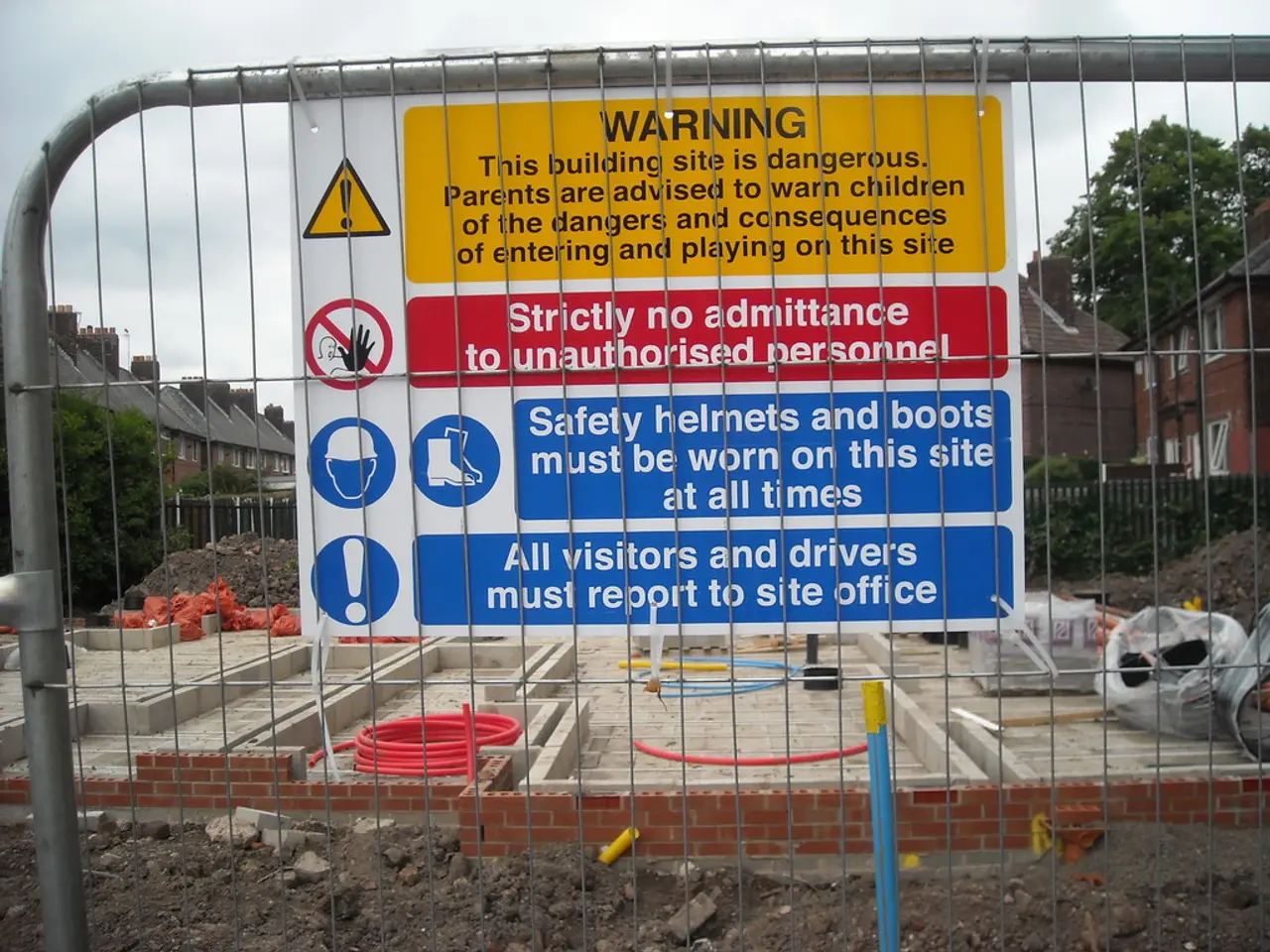Securing a mortgage for unapproved land: Possibilities and challenges
In the world of property finance, navigating the landscape of land without planning permission can be challenging. Here's what you need to know if you're considering this route.
Fewer lenders are willing to take on the risk associated with land without planning permission, which reduces competition and potentially leads to less competitive rates. However, there are specialist lenders who are ready to consider such cases, but their services are best accessed through a specialist mortgage broker experienced in complex and non-standard property finance.
These brokers have a network of lenders who are willing to consider land purchases without planning permission and can guide you through the application process to improve your chances of approval. Lenders typically require stronger evidence of your ability to repay because land without planning permission is seen as higher risk, so expert broker support is essential to compile a strong application and find suitable lenders.
Costs and Conditions
Loans for land without planning permission usually require larger deposits than standard mortgages, often ranging from 25% to 50% down payment depending on lender policies and land type. Typical loan-to-value (LTV) ratios can be from 50% to 75% on self-build or commercial land loans.
Specialist land loans generally carry higher interest rates than conventional residential mortgages due to increased risk. Additional valuation fees and broker fees may also apply.
Properties (or land) without planning permission often undergo multiple valuations, including the land value and a potential completion value after development. Lenders sometimes release funds in stages aligned with development milestones or valuations.
Planning Permission
While not always mandatory, having planning permission improves your application significantly, often leading to better rates and terms. Without permission, lenders may require extra collateral, and the process can be more cumbersome with a higher chance of rejection.
Additional Costs
Beyond borrowing costs, you should budget for permit-related expenses (septic, well, driveway, building permits) when developing land without planning permission. Local regulations vary widely and can affect overall costs and timelines.
Strategies for Securing a Mortgage
- Paying cash for the land and then getting a mortgage is an option for a self-builder, but this strategy is only suitable for experienced developers.
- Engaging with the local planning department can provide insights into the likelihood of obtaining planning permission.
In summary, the most effective way to secure a mortgage on land without planning permission is to engage a specialist mortgage broker who can match you with expert lenders. Expect higher deposits, potentially higher interest rates, staged valuations, and scrutiny of your repayment capacity. Planning permission greatly improves your chances but is not always mandatory if you can provide additional security or demonstrate strong financial standing. Always factor in additional costs for permits and potential legal requirements related to development.
For further information, consider consulting resources like Online Mortgage Advisor and Capital Farm Credit, depending on your location.
- Specialist mortgage brokers, who have a network of lenders willing to consider land purchases without planning permission, can guide you through the application process to improve your chances of approval, as they are essential in compiling a strong application and finding suitable lenders.
- Loans for land without planning permission usually require larger deposits, often ranging from 25% to 50% down payment, and typical loan-to-value (LTV) ratios can be from 50% to 75%.
- Properties or land without planning permission often undergo multiple valuations, and lenders might release funds in stages aligned with development milestones or valuations.
- Paying cash for the land and then getting a mortgage is an option for a self-builder, but this strategy is only suitable for experienced developers.
- Engaging with the local planning department can provide insights into the likelihood of obtaining planning permission, which is beneficial as it can improve your application significantly, often leading to better rates and terms.




